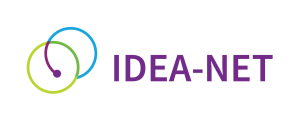University of Malta – Msida, Malta
In the last two years the following activities regarding equal access/inclusion/diversity were taken under the plan:
- Support and counselling for students and university staff,
- Lectures, workshops, seminars for students, faculty and non-teaching staff,
- Improving physical accessibility,
- Improving digital accessibility
The staff working on the plan’s implementation finds that support and counselling have the greatest impact because they are the most necessary to students and staff.
Additionally, the strategy development has been initiated. Recommendations and guidelines to counter exclusionary and discriminatory practices at the university have been developed. Outreach work has been done as well.
The latest service developed under the plan is the Office for an Equity Officer.
IDEA-net: Expanding the network of Inclusion, Diversity, Equity and Access (IDEA) practitioners in higher education through institutional capacity building
Project ref: 2022-1-NL01-KA220-HED-000089789

This project has been funded with support from the European Commission. This website reflects the views only of the authors, and the Commission cannot be held responsible for any use which may be made of the information contained therein.

